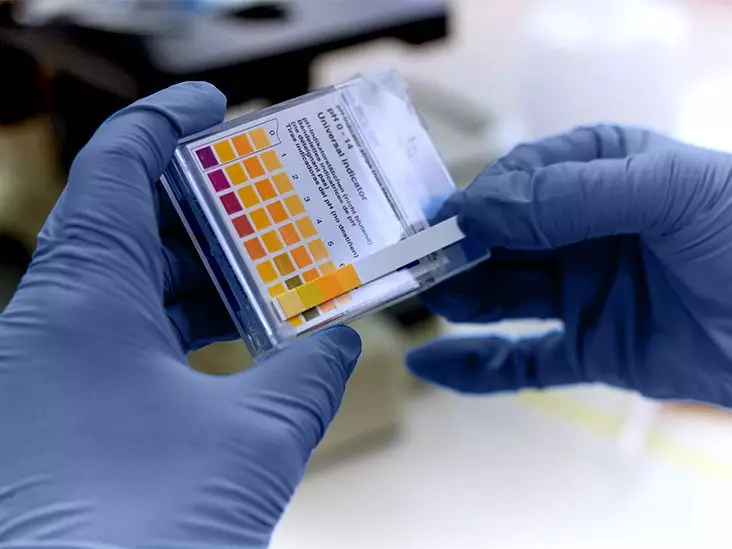Prostate cancer has emerged as one of the leading forms of cancer among men, primarily due to the alarming rise in diagnoses. This condition, which develops within the prostate gland situated between the bladder and penis, poses a significant public health challenge. Despite the high treatability of early-stage prostate cancer, the journey towards effective treatment is often hindered by the complexities surrounding detection. Traditional methods, notably prostate-specific antigen (PSA) testing, have long dominated the screening landscape but are fraught with limitations. The search for reliable biomarkers—specifically those that can accurately reflect the presence and severity of prostate cancer—has become a focal point for researchers worldwide.
Advancements Through Innovation
In a groundbreaking study recently published in the journal *Cancer Research*, researchers are making headway by utilizing an innovative blend of artificial intelligence and detailed genetic analysis. By analyzing mRNA activity from thousands of tumor cells, they have successfully developed digital models of prostate cancer. The culmination of their work suggests that urine-based biomarkers may serve as a promising alternative to the conventional PSA tests, potentially transforming the way prostate cancer is diagnosed and monitored. This shift from invasive blood tests to a simple urine test is not merely a convenience; it represents a pivotal change in how the medical community approaches early cancer detection.
First author Martin Smelik highlights the findings that demonstrate how these candidate biomarkers can be effectively identified through urine analysis. In contrast to traditional blood tests, this novel approach boasts advantages that are hard to ignore: non-invasive, painless, and cost-effective. The implications are profound, particularly when it comes to addressing the limitations of PSA testing, which can produce false positives and negatives, leading to unnecessary biopsies and patient anxiety.
Rethinking the Role of Biomarkers
The identifying biomarkers derived from urine samples show great promise, not only for detecting cancer but also for gauging its severity. High PSA levels can stem from various conditions unrelated to cancer, creating confusion during diagnosis. In contrast, researchers found that these new biomarkers provide a clearer distinction between cancerous and non-cancerous states, indicating a potential leap towards more accurate screening mechanisms. This newfound clarity in diagnosis is not just about the science; it fundamentally reshapes the patient experience, making the journey less daunting and more straightforward.
Milan Sheth, MD, emphasizes the inherent advantages of these findings. Traditional diagnostic methods often involve uncomfortable invasive procedures, limiting accessibility and efficiency in the earlier stages of cancer detection. The novel approach proposed by the researchers could dramatically enhance early intervention strategies, significantly altering how health care providers manage prostate cancer risks. The ability to distinguish not only between cancerous and benign states but also to assess disease progression through urine testing represents an exciting frontier in oncological research.
Collaboration and Future Prospects
The potential for this novel research to translate into clinical practice is bolstered by plans for extensive clinical trials designed to validate these findings further. Collaboration among research institutions could expedite the integration of these urine-based biomarkers into screening programs across the UK and beyond. The long-term vision is clear: a more effective and streamlined approach to prostate cancer diagnosis and treatment, which could serve not only men at risk of prostate cancer but also provide insights applicable to other cancers.
As Ramkishen Narayanan, MD, points out, the prostate cancer field has become stagnant with the use of PSA as the primary biomarker for nearly five decades. The introduction of urine-based biomarkers thus represents a critical evolution in cancer diagnostics. It’s a step towards a future where detection is not just more efficient but also more human-centric, addressing the discomfort and uncertainty often associated with traditional methods.
With emerging technologies paving the way for innovative solutions, the quest for reliable cancer biomarkers has never been more hopeful. The potential of urine-based testing could reshape the screening landscape for prostate cancer, offering a more streamlined, less invasive alternative to the painful biopsies and frequent hospital visits that currently characterize the diagnostic process. For patients and their families, this means not only better outcomes but also a dignified approach to a highly sensitive health issue. As research continues to unfold, the scientific community remains poised to pioneer advancements that resonate far beyond the realm of prostate cancer, fostering a broader impact on cancer diagnostics and patient care globally.

